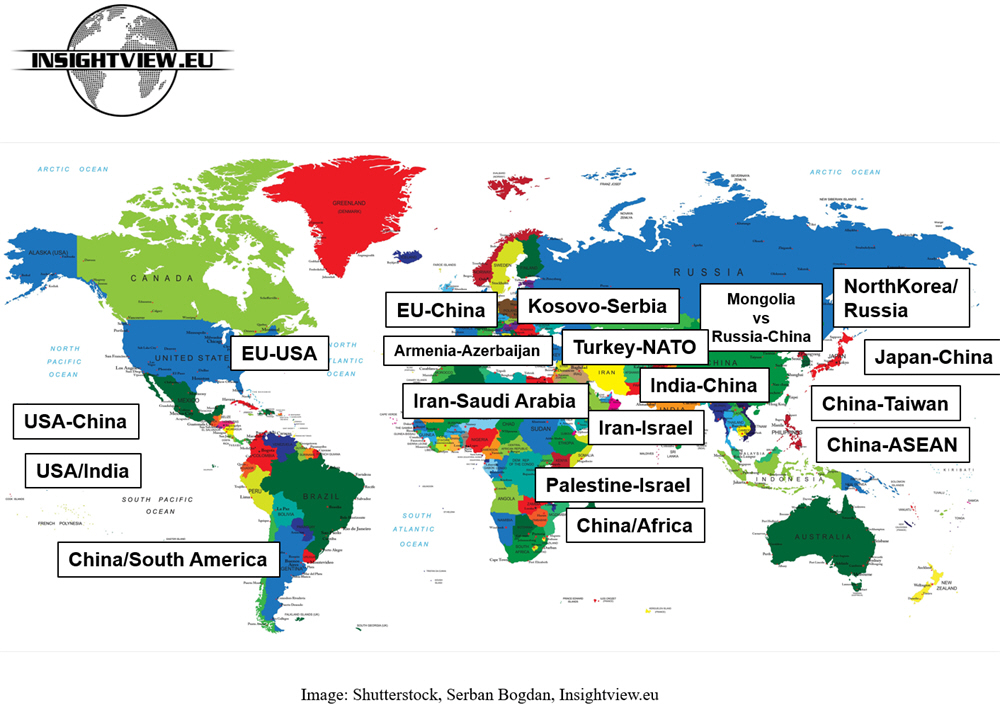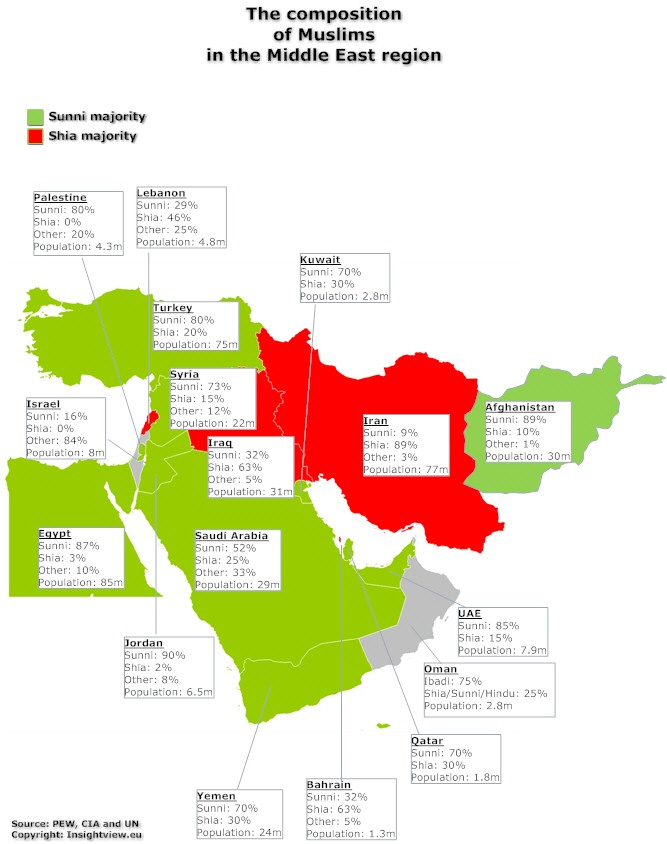Israel's 'September 11': The Middle East powder keg could ignite any moment. Hamas terrorist attack will cast global immigration in an even less favourable light
This weekend, Hamas, the ruler of the Palestinian Gaza Stribe, launched a massive terrorist attack on Israel - 50 years after the
Yom Kippur War of 1973, when a coalition of Arab nations took the Israeli defence forces off guard. The Yom Kippur War was a significant conflict that led to a reassessment of regional power dynamics and forced Israel to realise its vulnerabilities despite its military capabilities.
The scale of this weekend's terror attack fuels speculation that Iran could be involved, potentially with indirect Russian support. However, no evidence has substantiated these claims yet, according to US Foreign Secretary Anthony Blinken. Regardless, the intrusion by Hamas is a disaster for Israeli Prime Minister Benjamin Netanyahu and his far-right government, who have demonstrated a staggering lack of competence, according to many Israelis [read the article,
Hamas attack: The greatest intelligence failure in Israeli history? The Jerusalem Post].
The political fallout is yet to come once the Israeli authorities regain control. This could take time if the conflict also escalates to the West Bank [ruled by Fatah - read the article,
Palestinians report 11 killed across West Bank in clashes with Israeli forces | The Times of Israel] and Southern Lebanon [ruled, to no small extent, by Hezbollah - read the article,
Rockets fired from Lebanon at Israel in possible sign Hezbollah is joining the war]. The Middle East is once again a dangerous powder keg [read the article,
Egyptian policeman kills Israeli tourists in Alexandria: Reports | Al Jazeera].
The Middle East powder keg has made geopolitics even more complicatedThis weekend's events are another crisis in a world that was already heading towards more dangerous geopolitical environments. This results from the United States having neither the will nor the resources to act as the world's police. Instead, a multi-polar world has emerged where no aspiring superpowers heed Washington's directives anymore. This has created many security vacuums, which Moscow, for instance, exploited by invading Ukraine.
The many security vacuums created are further complicated by several countries playing different roles in various conflicts. This applies, for instance, to the conflict between
Muslim-majority Azerbaijan and Christian-majority Armenia, where both Israel and Turkey support Azerbaijan [read the article,
Israeli arms quietly helped Azerbaijan retake Nagorno-Karabakh, to the dismay of region's Armenians]. Conversely, Iran supports Armenia, which is also supported by "Iran's best friend", Russia - at least until recently [read the article,
Russia has 'betrayed' Armenian people by standing aside in Nagorno-Karabakh - Charles Michel | Euronews].
The extent of Hamas' terror attack is so comprehensive that Washington is, of course, forced to support its ally, Israel, militarily, even though many in the Western world do not believe that Prime Minister Netanyahu's increasingly authoritarian behaviour has done much good for Israel [read the article,
U.S. is sending a carrier strike group closer to Israel and will begin supplying munitions starting today]. The US response will now test the reaction from, not least, China, which today has greater economic interests in the region. The United States is far less dependent on energy supplies from the Middle East than it was 20 years ago.
China relies heavily on energy resources from the Middle East and would not want a significant conflict that jeopardises its oil suppliers, such as Saudi Arabia, Iran, and Iraq [40% of China's oil imports]. Historically, China has been cautious in its military interventions, focusing more on economic influence. Whether China feels militarily strong enough to defend its interests in the Middle East by sending an aircraft carrier to the region or if such ventures remains a question[read the article,
China's newest aircraft carrier prepares to take to the seas | Financial Times]. On the other hand, President
Xi Jinping has proven to be a risk-taker who also believes that China deserves an international role and influence on par with the United States.
Arab leaders are indifferent to the Palestinians. This applies not to the Arab population
Despite the tragic circumstances, Insightview focuses on the consequences for the financial markets, global politics, and economics. In this context, recent events fuel Insightview's central narrative - that geopolitics and demographic headwinds will drive bond yields higher in Western countries.
Why is the Hamas attack relevant to the financial market? The simple answer is that the unrest has all the ingredients to spread. Admittedly, Middle Eastern
leaders generally do not care about the Palestinian cause - they talk much but act little. Nonetheless, the conflict will likely spread because countries like Iran and Russia are interested in such an outcome.
This weekend's events represent Israel's "September 11," forcing even those in the West who find Prime Minister Netanyahu repugnant to give carte blanche regarding Israel's "comprehensive military response." The response will be unprecedented, and ordinary Palestinians will pay a heavy price as Hamas leaders often reside in other Arab countries [read the Arab Weekly,
Hamas leaders seen as living in luxury while Gazans suffer, 2021]. It could lead to the obliteration of Gaza as the scale of the terrorist attack begins to resemble “outright mass killings”, according to media reports [read the article,
Israel-Hamas War: At least 260 bodies found after attack on Israeli music festival, rescuers say | Sky News]. Israel's military response will, in turn, create unrest among populations in the Arab world, many of whose political leaders have been working on normalising relations with Israel [read the article,
Saudi crown prince says Israel diplomatic normalisation closer every day].
Such "popular unrest" benefits Iran's authoritarian regime, eager to divert attention from domestic protests. It is also beneficial for Russia, Iran's ally, which would like to see the United States embroiled in new Middle Eastern conflicts to distract from Russia's invasion of Ukraine. In this context, China's role in the coming months is also of special interest [read the Arab Center Washington DC article,
How Steady Are China-Israel Relations?].
The European Union is once again the big loserEU nations have much more at stake. A spreading conflict in the Middle East risks intensifying a new refugee wave towards Europe - or, more precisely, reinforcing the existing refugee crisis - potentially strengthening far-right movements just before the next European Parliament elections. This weekend's events in Israel will not make Europeans more open-minded towards immigration. Indeed, these events will make it almost impossible for even the political centre
not to tighten asylum rules significantly [read the article,
Germany: Exit polls put CDU/CSU ahead in Bavaria and Hesse].
In this debate, President Erdogan primarily champions Turkey's interests. Right now, that means showing sympathy for the Palestinian cause, especially if such a cause gains popular support in the Middle East. This could also mean allowing more refugees to move towards the EU, which would suit President Erdogan's "frenemy", Russia, as it could increase the chance of a rift between Turkey and NATO.
The EU's biggest problem lies in the large concentration of immigrants, especially in countries like Germany, France, and Sweden. How would these groups react if the Middle East tensions escalate further? Another question arising within EU countries is no longer just their weak external defence capabilities after Russia invaded Ukraine. Many EU member states may now see
a huge influx of immigrants since 2015 in a different security perspective, given that 1,000 Palestinian "fighters" were able to overwhelm Israel's mighty military so swiftly [thousands of Palestinians celebrated Hamas' terror attack in several European capitals this weekend].
Why is this important from a financial market perspective? Several European countries may see this as yet another warning to accelerate their military rearmament and boost their domestic intelligence services. This applies particularly to NATO countries that have hesitated to rearm and even to the United States, where defence spending is "only" 3.1% of GDP - the lowest since 2000. Insightview does not doubt that the events in Israel will add more urgency for Western countries to invest massively in national security, both externally and internally. This will create more demand for labour when labour shortages prevail, and the supply of workers will further decline in the years to come [read also the Bloomberg article,
'Made in USA' Revival Sparks Building Boom, 506% Rally in Value].
In conclusion, this weekend's tragic events would have been bullish for the government bond market a decade ago, as the bond market would have been seen as a "safe haven". It is quite the opposite today, as this puts more demand on the public sector at the worst possible time. Furthermore, escalating geopolitical tensions could potentially drive up oil prices, making Western central banks' tasks even more complicated.
If there's a silver lining for the West, it's that India now shares the same stance as the European Union and the United States, as opposed to its neutrality in the Ukraine conflict [read the article,
PM Modi's message to Israel: 'Stand in solidarity at this difficult hour' | Hindustan Times]. Nonetheless, Insightview does not think one should read too much into that [listen to an exciting and informative Foreign Affairs podcast,
Will India Take America's Side Against China? | The Foreign Affairs Interview]. We live in a markedly different world, where many security policy vacuums are far from being filled.
2. October 2023 - A bad weekend for the European Union and Ukraine - but unfortunately, not the last. The 'Danish case' does not give cause for optimism among voters
23. May 2023 - A short note on the latest geopolitical events: The course of events has taken control away from politicians around the world










